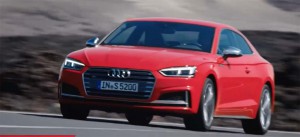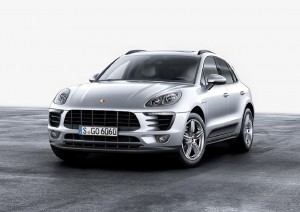
Consumer Reports named Audi as the top automotive brand for 2017. It's the second consecutive year the German brand has won.
Every year automakers set out to make the best vehicles possible, and seemingly every year those vehicles come from Germany or Japan, according to Consumer Reports.
This year is no different as the magazine named Audi as the best automotive brand in the U.S. for 2017 and the second consecutive year. It was followed by Porsche, BMW, Lexus and Subaru … also in that order for the second year in a row.
In fact, you’ve got to get all the way down to the eighth spot to find an American brand, Tesla, which is followed by Buick in 10th place. The big movers this year: Acura, Infiniti and Cadillac each moved up six spots the rankings.
“To arrive at the rankings, we averaged the Overall Scores for new cars from every major automotive brand based on the vehicles we have purchased,” said Jeff Bartlett, deputy automotive editor.
A bonus for one automaker was the fact that Chrysler rose seven places. However, FCA’s brands are consistently toward the bottom of the rankings. However, this year, FCA elected to do something about that ranking: contest it.
(Toyota, Honda hang on to top rankings in 2017. Click Here for the story.)
“We value all feedback from our customers and third-party evaluators, including Consumer Reports, as it helps guide our product improvements,” the automaker wrote in an email. “We respect Consumer Reports’ opinion, as they’re one of the many third-party evaluators we receive comments from.
“At the same time, we continue to encourage customers to experience our vehicles for themselves. We’re aggressively pursuing both product and launch-quality improvements as they are top priorities for the Company and our internal measurements continue to show sustainable progress.”
Chrysler, which has one of the higher average road-test scores, is hurt by the fact that based on just two models: the 300 and Pacifica (low Overall Scores keep both from being recommended). Fiat, Jeep, Mitsubishi, and Land Rover remain stubbornly stuck at the bottom of the list.
The Overall Score is the combination of road tests, predicted reliability, owner satisfaction, and safety. For each brand the magazine indicates the percentage of tested models that earned a recommended designation.
(Click Here for details about how high-tech glitches remain long-term reliability issues for automakers.)
This percentage reveals a meaningful differentiation. Only Porsche, BMW and Mazda earned a recommendation on every model tested. Audi, Honda and Hyundai lead the other brands, with 86% of their tested lines being recommended, the magazine notes.
Cadillac moved up six positions from 24 to 18 due to improved performance across its line-up.
Lincoln, Chevrolet and Ford finished in 15th, 17th, and 21st respectively with reliability being the big problem for each brand. Meanwhile, Toyota dropped out of the top 10 from eighth to 11th due to the poor reliability of its redesigned Tacoma pickup.
“From year to year we see movements in brand rankings because of changes in reliability and new road tests,” Bartlett noted, adding that Subaru dropped from second to fifth place because the previously very reliable Legacy and Outback are now rated only average, and the WRX/STI dropped to below average.
(The 1% mostly likely drives the same vehicle everyone else does. Click Here to find out what it is.)
Mini dropped 11 places because the Cooper and Clubman were deemed unreliable, that weighed down the average Overall Score. Volkswagen tumbled eight spots because its reliability slid from average last year to below average for 2017.


Does consumer reports work for thr European car makers?